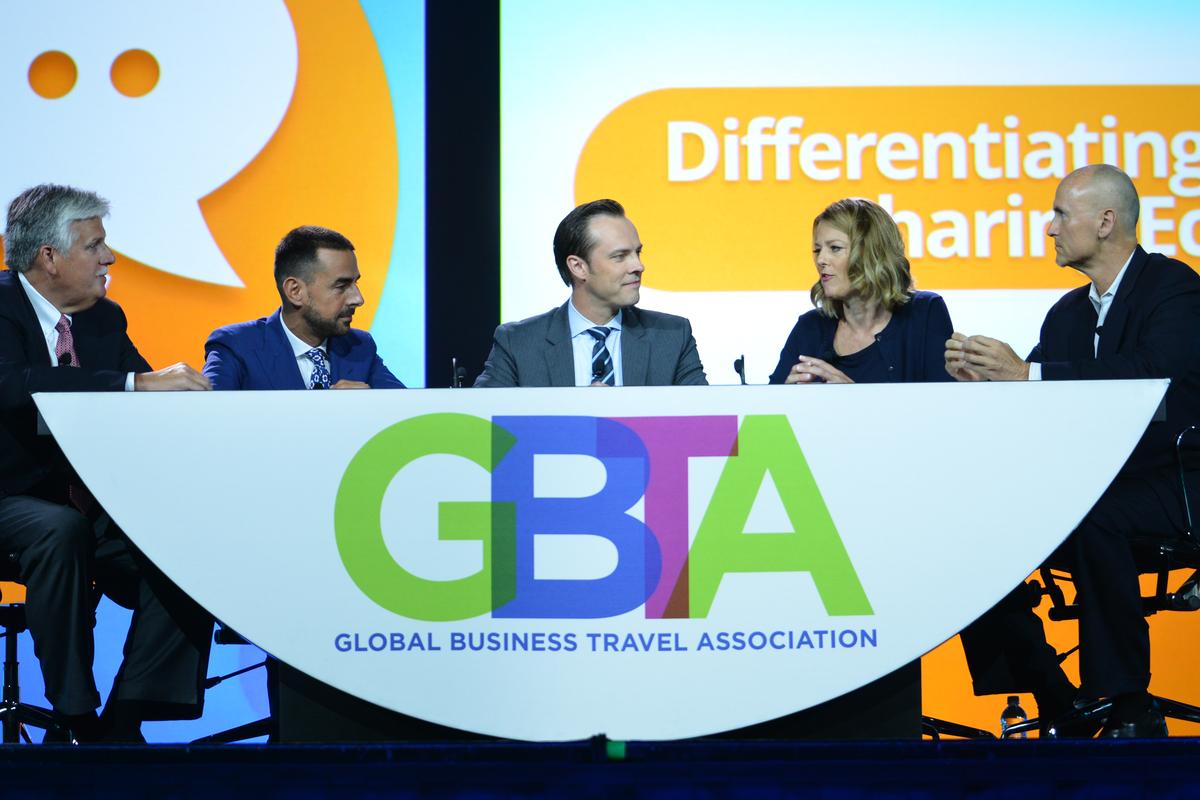Convenience, Cost-Savings and Customer Experience
Monday on Center Stage at GBTA Convention, Guy Langford of Deloitte & Touche LLP moderated a panel on differentiating branding in a sharing economy featuring two executives from more traditional and well-established companies and two new entrants from companies clearly playing in a sharing economy. The panelists included executives from NH Hotel Group, Enterprise Holdings, Zipcar and Airbnb who discuss strategies around branding and differentiation for companies trying to succeed in this shifting marketplace.
What constitutes the sharing economy?
Enterprise Chief Strategy Officer Gregory Stubblefield said the sharing economy in his business has been around for multiple decades, saying Enterprise shares more than one million vehicles in North America alone in any given week.What’s really changed and why there’s so much activity around the sharing economy concept, he added, is that business travelers and customers want access, convenience and low cost.
Kaye Ceille, president of Zipcar, said sharing for them is viewed more in terms of efficiency saying they have learned the average North American car sits idle for more than 23 hours a day. When Zipcar was born, it was with the thought that if they could get people sharing cars it would be more efficient, both in terms of time and money.
Guy concluded that sharing is more about access and the cost savings.
Bleisure
When asked about shifting from a primary focus on a leisure-oriented audience to adding a business-oriented one, Chip Conley, Head of Global Hospitality and Strategy for Airbnb, talked about combining business and leisure, or “bleisure”. He said it’s more about blending than about corporate versus leisure or hotels versus homes. He admitted to staying 7 of his last 12 days on a business trip in Airbnb rentals and five in hotels. He believes this has to do with business travels looking more for discovery than for indulgence.
Investing in Tech Vs. Bricks and Sticks
Rufino Pérez Fernández, Chief Commercial Officer for NH Hotel Group talked about the impact of technology on his company’s business model. “In the end, technology is not what really matters,” he said. Technology is for innovation and then innovation sells an experience. “If you are doing something that doesn’t enhance the experience, it doesn’t really matter.”
The Three C’s
A main takeaway from the panel was technology is becoming a cornerstone of delivering on the customer experience and companies can either disrupt or be disrupted as they strive to deliver on the three C’s: convenience, cost-savings and customer experience.

